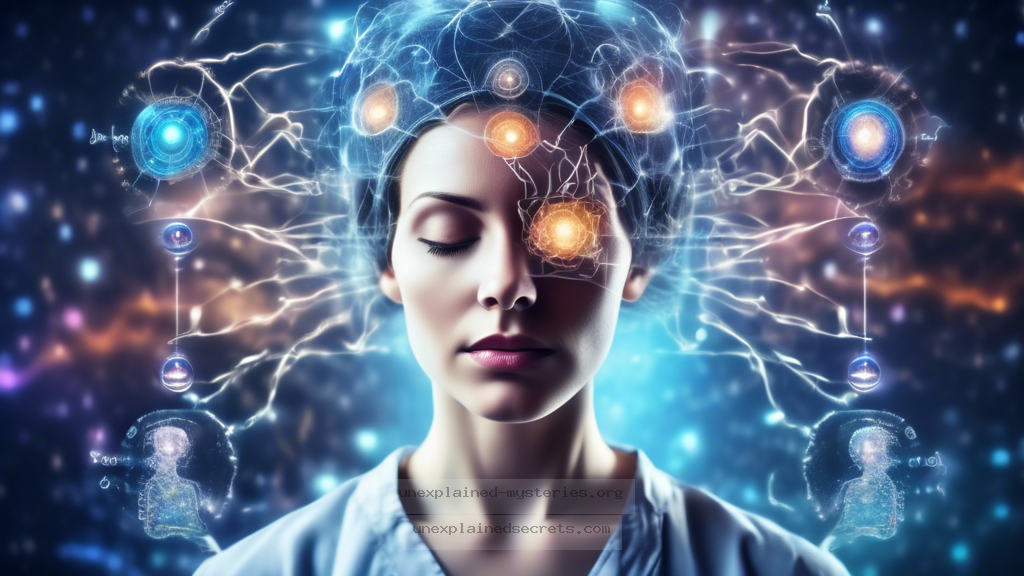Can Telepathy Be Scientifically Proven Through Controlled Experiments?
Can Telepathy Be Scientifically Proven Through Controlled Experiments?
The concept of telepathy—defined as the direct transmission of thoughts or feelings from one person to another without the use of known human senses—has long captured the imagination of scientists and the public alike. But can this phenomenon be substantiated through rigorous scientific methods? This question is not merely academic; it touches on the very nature of human communication and consciousness. As research continues to evolve, understanding telepathy could unlock new dimensions of human interaction and cognitive science.
Historical Context of Telepathy Research
The exploration of telepathy dates back to the late 19th century when the term was coined by the philosopher Frederick William Henry Myers. Early research was largely anecdotal, often focusing on anecdotal evidence rather than controlled studies. However, it gained traction in the early 20th century with the advent of parapsychology as a discipline, influenced by figures like J.B. Rhine, who conducted experiments at Duke University to test psychic phenomena under controlled conditions.
Rhine’s work laid the foundation for telepathy research, utilizing card guessing experiments to statistically analyze the likelihood of successful communication between individuals. Despite rigorous methodologies, the results were often met with skepticism due to the subjective nature of the findings.
Core Concepts and Theories Behind Telepathy
To investigate whether telepathy can be scientifically proven, it’s crucial to understand the underlying theories and concepts. The primary schools of thought include:
- Quantum Entanglement: Some theorists propose that telepathy might be explained through quantum mechanics, particularly the phenomenon of entanglement, where particles remain interconnected regardless of distance.
- Non-local Consciousness: This theory suggests that consciousness is not confined to the brain and can interact with other consciousnesses in ways we do not yet understand.
- Biological and Neurological Mechanisms: Some researchers investigate whether telepathy could be a biological phenomenon, potentially linked to undiscovered human senses or neural pathways.
Each of these theories presents a different angle for investigation, which can inform experimental designs aimed at measuring telepathic phenomena.
Evidence from Controlled Experiments
Controlled experiments aimed at testing telepathy often involve two participants: a “sender” and a “receiver.” The sender thinks of a specific image, word, or concept, while the receiver attempts to perceive or guess that thought. Here are notable examples:
- Rhine’s Zener Card Experiments: Rhine used a deck of Zener cards, each featuring different symbols. Over thousands of trials, results indicated a success rate above random chance, though critics argued for methodological flaws.
- Sheldrake’s Telephone Telepathy Experiments: Biologist Rupert Sheldrake conducted studies where participants were asked to guess who was calling them. His findings claimed a significant success rate, suggesting a form of telepathic connection.
Despite these studies, replicability remains a significant issue. Many skeptics argue that positive results can often be attributed to chance, bias, or flawed methodologies.
Practical Implications of Telepathy Research
If telepathy could be proven, the implications would be profound. It could reshape our understanding of communication, enhance interpersonal relationships, and even lead to advancements in fields like psychology and neurology. Consider the following potential applications:
- Enhanced Communication: Telepathy could offer a new dimension to how we share thoughts and emotions.
- Therapeutic Uses: Understanding telepathy might help in treating mental health disorders through improved empathy and emotional regulation.
- Interpersonal Relations: If telepathy is validated, it could revolutionize how we perceive trust and connection in relationships.
Alternative Perspectives and Skepticism
Despite the fascination surrounding telepathy, skepticism is rife. Critics often cite the lack of reproducible results and the challenges of conducting unbiased research. Key arguments against telepathy include:
- Placebo Effect: Some suggest that positive results may stem from the participants’ beliefs in telepathy rather than actual phenomena.
- Confirmation Bias: Researchers and subjects may unconsciously favor outcomes that align with their expectations.
- Statistical Anomalies: Critics argue that small sample sizes can produce misleading results that appear significant due to chance.
For many skeptics, the burden of proof lies heavily on proponents of telepathy. Until more robust evidence emerges, it remains a contested topic in scientific circles.
Common Misconceptions about Telepathy
Misunderstandings abound regarding telepathy, often fueled by media portrayals and anecdotal claims. Some common misconceptions include:
- All Twins Have Telepathic Connections: While many twins report feeling a deep bond, this is often attributed to shared experiences rather than actual telepathic abilities.
- Telepathy is a Superpower: The notion that telepathy is a mystical ability rather than a natural phenomenon can skew public perception.
- Telepathy is Always Accurate: Many believe that telepathy yields flawless communication, but in practice, misinterpretations can occur.
Best Practices for Investigating Telepathy
For those interested in studying telepathy, adhering to scientific rigor is paramount. Best practices include:
- Control Variables: Ensure that external factors do not influence the results, including environmental noise, biases, and participant backgrounds.
- Randomization: Use random assignments to mitigate selection bias in participant pairing.
- Replication: Encourage independent replication of experiments to validate findings.
By following these principles, researchers can bolster the credibility of their work and address the skepticism surrounding telepathy.
Future Developments in Telepathy Research
The future of telepathy research is promising, particularly with advancements in technology. Ongoing studies aim to explore:
- Neuroimaging Techniques: Tools like fMRI and EEGs could provide insight into brain activity associated with telepathic communication, revealing patterns or connections.
- Biofeedback Mechanisms: Research into how physiological responses may correlate with telepathic experiences could unravel the biological underpinnings of this phenomenon.
- Artificial Intelligence: AI could assist in developing protocols for testing telepathy under controlled conditions, potentially streamlining the research process.
Conclusion: The Quest for Scientific Validation
In conclusion, the question of whether telepathy can be scientifically proven remains open-ended yet intriguing. Historical context reveals a rich tapestry of inquiry, while core concepts and experimental evidence provide a foundation for further exploration. Despite skepticism and misconceptions, the potential implications of validated telepathy are vast and could redefine our understanding of communication and consciousness.
As research continues to evolve, the possibility of uncovering the truth behind telepathy persists, inviting both curiosity and skepticism. Whether telepathy is a genuine phenomenon or a product of our collective imagination, the journey to answer this question is as captivating as the subject itself.
Other Articles
Recent Posts
- What Happened to Flight MH370? The Conspiracy Theories That Still Haunt Us
- What Secrets Lurk Within the Walls of the Infamous Trans-Allegheny Lunatic Asylum?
- What Evidence Supports the Existence of Bigfoot in the Pacific Northwest?
- What Happened to the Indus Valley Civilization? Unraveling the Mysteries of Ancient Urban Life
- Can Telepathy Be Scientifically Proven Through Laboratory Evidence?







